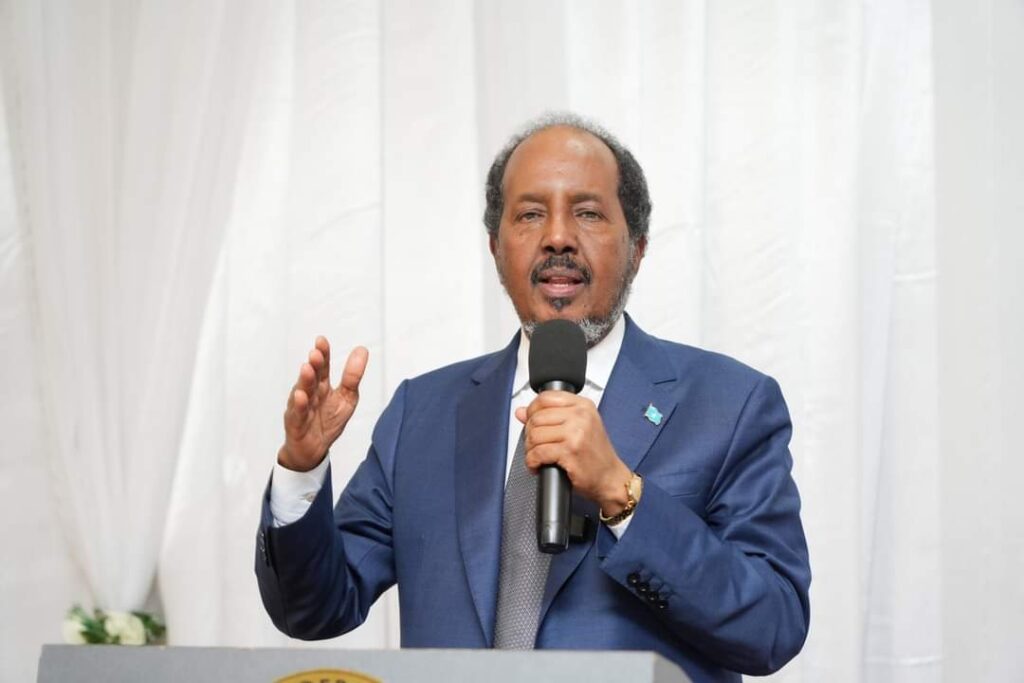Somalia is facing one of the most significant geopolitical challenges in its history. While Ethiopia — with the support of external actors such as the UAE and, potentially, Turkey — continues to pursue maritime and military ambitions, Somalia is also grappling with internal conflicts and political discord. This combination of factors threatens the country’s stability and sovereignty.
I firmly believe that Somalia can only successfully address these threats by resolving internal conflicts while pursuing a strategic foreign policy to counter external pressures.
Ethiopia’s Ambitions and the Maritime Power Struggle Ethiopia has been actively pursuing a direct access route to the sea, especially for economic purposes.
However, despite Ethiopia already holding 19% ownership of the Port of Berbera, it makes little use of this asset. Instead, Ethiopia continues to rely heavily on the Port of Djibouti for its import and export activities. This raises serious concerns that Ethiopia’s true motivations go beyond economic interests. In my assessment, Ethiopia strategically plans to establish a military base in the Gulf of Aden or the Indian Ocean. The claim that commercial interests drive its actions may be a cover to disguise its military intentions.
Also, the UAE has actively supported Ethiopia in developing its maritime and military capabilities. The UAE’s substantial investment in regional ports such as Berbera and Bosaso demonstrates its aim to expand its influence in the Red Sea and Gulf of Aden. Turkey, a strong ally of Somalia, has significantly mediated tensions between Somalia and Ethiopia. The recent negotiations in Ankara, along with the visits of President Hassan Sheikh Mohamud to Addis Ababa and Prime Minister Abiy Ahmed to Mogadishu, reflect Turkey’s efforts to ease tensions.
However, there is concern that Turkey, in pursuit of its own strategic goals, may inadvertently contribute to Ethiopia’s ambitions. The geopolitical landscape is, therefore, highly complex. Somalia must not only counter Ethiopia’s territorial ambitions but also remain vigilant to ensure that foreign actors do not exploit the region’s instability for their own gain. Somalia’s Internal Conflicts as a Major Weakness While the external threat is significant, Somalia’s greatest vulnerability lies within its own borders. Ongoing tensions between clans, federal states, and the federal government have severely undermined political stability and made it difficult to adopt a unified national strategy.
Conflict Between the Federal States and the Central GovernmentFrequent disputes between Somalia’s federal government and regional states such as Puntland, Jubbaland, and Galmudug have created political divisions. These internal tensions prevent the establishment of effective national security policies and economic reforms, leaving the country vulnerable to external influence.
The Role of Clan Conflicts
Clan rivalries over political power and economic resources have long destabilized Somalia. As long as these disputes remain unresolved, Somalia will continue to struggle with internal division, limiting its ability to respond effectively to external threats.
Strengthening National Unity and Conflict Resolution
To effectively counter external threats, Somalia must first address its internal divisions. Key steps include: Strengthening National Reconciliation efforts:
The federal government must engage in constructive dialogue with clan elders, religious leaders, and regional authorities to promote unity and trust. Equitable Distribution of Power and Resources: Establishing a fair and transparent system for distributing political power and economic resources is essential to reduce tensions.
Security Sector Reform: To strengthen its security framework, Somalia must build a unified and professional national army free from clan and regional loyalties. Building stronger regional and international alliances will contain Ethiopia’s ambitions and counter its growing influence; Somalia should actively pursue key alliances. Deepening Cooperation with Turkey: Somalia should expand its partnership with Turkey, especially in the military sector through Camp TURKSOM, to strengthen its armed forces and maintain diplomatic engagement with Ethiopia. Engaging with Qatar and Saudi Arabia: As key rivals to the UAE, Qatar and Saudi Arabia could provide Somalia with military and economic support to counter Ethiopia’s ambitions.Strengthening Ties with the African Union (AU) and IGAD: Somalia should increase its diplomatic efforts within these organizations to gain regional backing and collective security support.
Expanding Partnerships with Western Allies (USA, EU): Western powers have a vested interest in stability in the region. Somalia should leverage these relationships for economic investment, infrastructure development, and security assistance.
Somalia must prioritize economic growth to reduce its reliance on external players and bolster its sovereignty. Investing in new ports, improving trade routes, and modernizing infrastructure will enhance economic stability and minimize dependence on foreign-controlled maritime access points like Djibouti and Berbera.
Conclusion
Somalia is at a critical crossroads in its history. Ethiopia’s expansionist ambitions — backed by the UAE and potentially supported by Turkey — pose a significant threat to the country’s stability and sovereignty. Simultaneously, Somalia’s internal divisions weaken its ability to mount a strong and coordinated response.
Somalia can secure its future through domestic stability, strategic alliances, and economic self-sufficiency. Resolving internal conflicts, strengthening diplomatic ties, and investing in economic growth will enable Somalia to emerge as a strong and independent force in the Horn of Africa. Now is the time for Somalia to take decisive action—through national unity and smart diplomacy—to safeguard its sovereignty and build a prosperous, stable future.
By: Abdi Fidow


